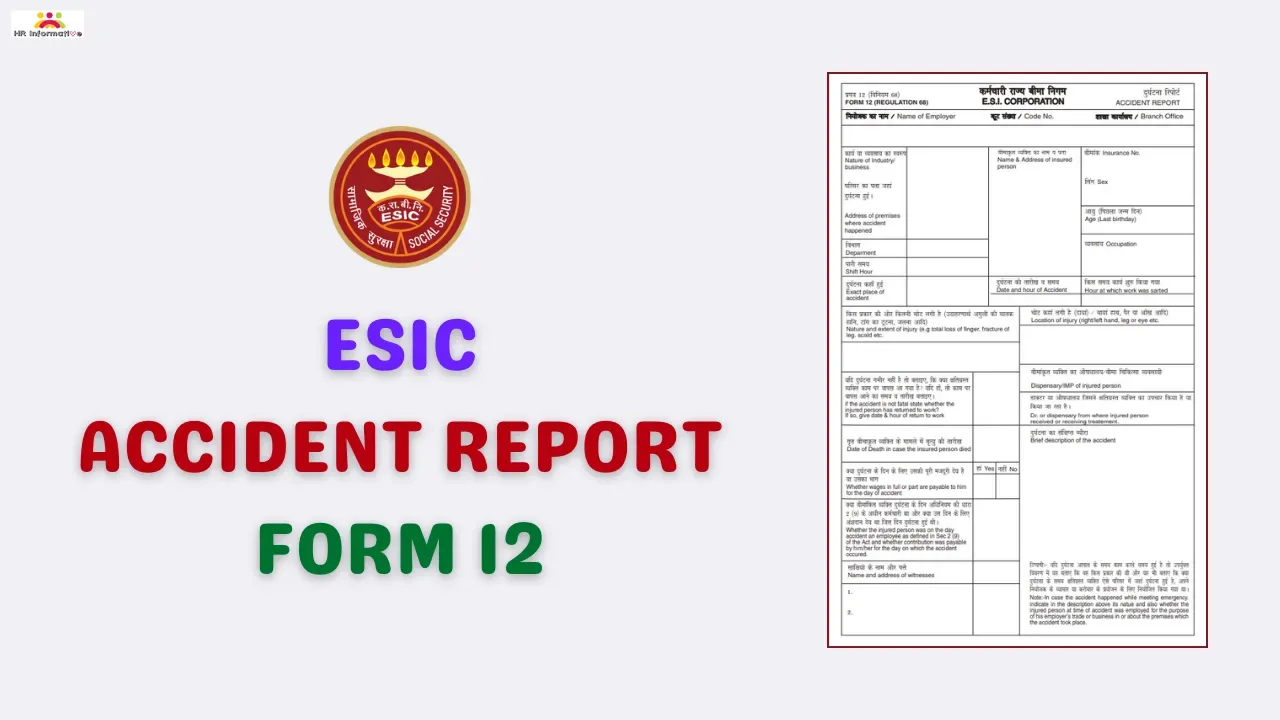What are Minimum Wages?
The minimum Wage is the lowest remuneration that employers need to pay their employees for their work whether they are skilled or unskilled.
The Minimum Wages are decided by the Appropriate Government (State Government or Central Government) which the employer needs to follow and pay the remuneration accordingly. Every state has its own authority to decide the minimum wage for the worker.
The Minimum Wages of all states are different from one to another. It is revised every six months.
Why Did The Minimum Wages Act Come into Force?
Employers use to exploit the workers. By taking advantage of the condition of the workers, they force them to work at low wages.
The minimum Wages Act came into force to protect the workers against exploitation and undue low pay.
When Did The Minimum Wages Act Come into Force in India?
The Labor Inquiry Committee appointed by the Government of India in 1944 studied the wages and earnings of workers in various industries of the country and told that the rates of wages are very low in almost all industries.
The committee felt that until that time, even in the country’s main industries, proper efforts were not made to improve the wages of the workers.
The question of legally fixing wages in some industries and employment in the country was discussed in 1943 and 1944 in the Standing Labor Committee and the Indian Labor Conference. Both the committee and the convention recommended fixing the rates of minimum wages under the law in some employments and the provision of a wage fixation plant for this.
Keeping these recommendations in mind, the Government of India enacted the Minimum Wages Act in 1948, which came into force in the country in the same year.
Some amendments have also been made to the Act from time to time.
The Minimum Wages Act, 1948
The Minimum Wages Act 1948 is an Act of Parliament concerning Indian labour law that sets the minimum wages that must be paid to skilled and unskilled labour.
In the Central sphere, the Act is enforced through the Central Industrial Relation Machinery (CIRM). CIRM is an attached office of the Ministry of Labour and is also known as the Chief Labour Commissioner (Central) Organisation. The CIRM is headed by the Chief Labour Commissioner (Central). While the State Industrial Relations Machinery ensures the enforcement of the Act at the State Level.
Try Free Online Minimum Wage Calculator
Some Important Definitions Under This Act
Child: Child means a person who has not completed his 14th year of age.
Adolescent: Adolescent means a person who has completed his 14th year of age but has not completed his 18th year.
Adult: Adult means a person who has completed his 18th year of age.
Appropriate Government: Appropriate government is “Central Government” for any scheduled employment under the Central Government, railway, mines, oil fields, and major ports. For any other employment, it is “State Government”.
Cost of Living Index Number: Cost of living index number means the cost of living index number applicable to employees in employment, declared by the competent authority by notification in the Official Gazette.
Employee: Employee means any person who is employed to do any work, skilled or unskilled, manual or clerical, in scheduled employment in respect of which minimum rates of wages have been fixed. But does not include any member of the Armed Forces.
Wages: Wages mean all remuneration capable of being expressed in terms of money. But does not include-
- House accommodation, supply of light, water, medical attendance.
- Other amenity or any service excluded by general or special order of the appropriate government.
- Pension Fund or Provident Fund or under any scheme of social insurance.
- Travelling allowance or the value of any travelling concession.
- Special expenses entailed on him by the nature of his employment.
- Gratuity payable on discharge.
Fixing Minimum Rates of Wages
The appropriate Government shall:
- Fix the minimum rates of wages for employment specified in Part II of the Schedule.
- Review at intervals not exceeding years, and revise the minimum rates, if necessary.
The appropriate Government may refrain from fixing minimum rates of wages in respect of any scheduled employment in which there are less than 1000 employees in the whole State.
The appropriate Government may fix-
- Minimum rate of wages for time work (minimum time rate).
- Minimum rate of wages for piece work (minimum piece rate).
- Minimum rate of remuneration to apply in the case of employees employed on piece work for the purpose of securing to such employees a minimum rate of wages on a time work basis (guaranteed time rate).
- Minimum rate (whether a time rate or a piece rate) to apply in substitution for the minimum rate which would otherwise be applicable, in respect of overtime work (overtime rate).
Minimum Rates of Wages
The appropriate Government may fix-
- A basic rate of wages and a special allowance to accord the variation in the cost of living index number applicable to such workers.
- A basic rate of wages with or without the cost of living allowance, and the cash value of the concessions in respect of supplies of essential commodities at concession rates.
- An all-inclusive rate allowing for the basic rate, the cost of living allowance and the cash value of the concessions.
Procedure for Fixing and Revising Minimum Wages
For the purpose of fixing minimum rates of wages, the appropriate Government shall either-
- Appoint as many committees and sub-committees as necessary to hold enquires and advise it. OR
- Publish its proposal and specify a date, not less than 2 months from the date of the notification, on which the proposals will be taken into consideration. The appropriate Government shall consult the Advisory Board also.
After considering the advice of the committee and all representations received by it before the date specified, the appropriate Government shall fix/revise the minimum rates of wages in respect of each scheduled employment. It shall come into force on the expiry of 3 months from the date of its issue.
Advisory Board
The appropriate Government shall appoint an “Advisory Board” for advising the Government generally in the matter of fixing and revising minimum rates of wages, and co-ordination the work of committees and sub-committees.
Central Advisory Board
The Central Government shall appoint a “Central Advisory Board” to advise the Central and State Governments in the matters of the fixation and revision of minimum rates of wages and for co-coordinating the work of the “Advisory Board”.
Overtime
Where an employee, whose minimum rate of wages is fixed, works on any day above the number of hours constituting a normal working day, the employer shall pay him an overtime rate fixed under this Act.
Minimum Time Rate Wages for Piece Work
Where an employee is employed on piece work for which a minimum time rate and not a minimum piece rate has been fixed, the employer shall pay wages at not less than the minimum time rate.
Maintenance of Registers and Records
Every employer shall maintain registers/records of employees by him, the work performed by them, the wage paid to them, the receipts they give, etc.
The appropriate Government may provide for the issue of wage books or wage slips to employees.
Annual Return of Minimum Wages
- Every employer is required to file the Annual Return of Minimum Wages with details prescribed in FORM III on or before the due date.
- FORM III with a Cover Letter should be submitted to the Labour Inspector in your concerned Labour Office.
- The last date for filing the Annual Return of Minimum Wages is 31st January.
Inspectors
The appropriate Government may appoint “Inspectors” for the purpose of this Act.
Claims
The appropriate Government may appoint any of the following to the authority to hear and decide all claims arising out of payment of less than the minimum rates of wages:
- Any Commissioner for Workmen’s Compensation Act.
- Any Officer of the Central Government.
- Any Officer of the State Government not below the rank of Labour Commissioner.
- Any other officer with experience as a Judge of a Civil Court or as a stipendiary Magistrate.
Where an employee has any claim under this Act, he may present an application within 6 months from the date on which the minimum wages became payable. The application may be admitted beyond 6 months if there is sufficient cause to the satisfaction of the authority. The application may be submitted by the employee himself, or any legal practitioner or any official of a registered trade union authorized, or any Inspector, or any person acting with the permission of the Authority.
When the application is made, the authority shall hear both applicant and employer and then may direct-
- In the case of a claim arising out of payment of less than the minimum rates of wages, the payment to the employee of the amount by which the minimum wages payable to him exceed the amount actually paid, together with the payment of such compensation, not exceeding 10 time the amount of such excess.
- In any other case, the payment of the amount due to the employee, together with the payment of such compensation, not exceeding Rs.10, and the Authority may direct payment of such compensation in case where the excess or the amount due is paid by the employer to the employee before the disposal of the application.
If the authority hearing any application, finds that it was either malicious or vexatious, it may direct that a penalty not exceeding Rs.50 be paid to the employer by the person presenting the application.
Every direction of the Authority under this section shall be final.
Penalties
If employees pay less than the minimum rates of wages fixed then employers could be imprisoned for up to 6 months, or Fine up to Rs.500, or both. Other offenses are punishable with a fine of up to Rs.500.
Powers
Power of State Government to add to Schedule: The Appropriate Government can add to either Part of the Schedule any employment in respect of which it is of opinion that minimum rates of wages should be fixed, with notice of 3 months.
Power of the Central Government to give direction: The Central Government may give direction to a State Government as to the carrying into execution of this Act in the State.
Power of the Central Government to make rules: The Central Government may make rules prescribing the terms of office of the members, the procedure to be followed in the conduct of business, the method of voting, the manner of filling up casual vacancies in membership, and the quorum necessary for the transaction of business of the “Central Advisory Board”
Minimum Wages Act, 1948 PDF Download
The Minimum Wages Act, 1948.pdf
You may visit the Official Website for more details.
Related Posts:



